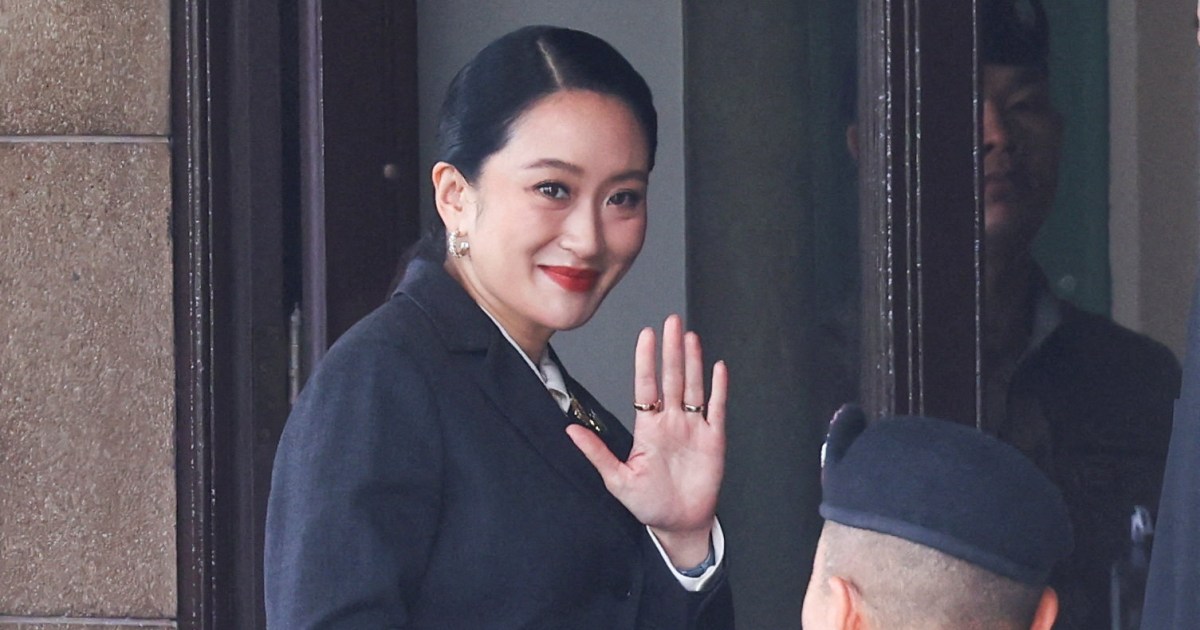Bangkok, Thailand – Thailand’s Constitutional Court has removed suspended Prime Minister Paetongtarn Shinawatra from office, after finding her guilty of ethical misconduct over a controversial phone call with Cambodia’s former leader, Hun Sen.
The ruling on Friday makes Paetongtarn the fifth prime minister to be stripped of office by Thai judges since 2008 and plunges the kingdom into prolonged political uncertainty and potentially a snap election.
The nine-judge court, seen as allied with Thailand’s conservative royalist establishment, ruled that the 39-year-old politician had “seriously violated” the ethical standards required of a prime minister during her call with Hun Sen in June, in which she discussed efforts to prevent an escalation of a deadly border conflict.
The court said Paetongtarn had put her personal interests over those of the nation and damaged the country’s reputation.
In the leaked conversation, Paetongtarn was heard pandering to Hun Sen and calling him “uncle”, while criticising a senior Thai army commander and describing him as an “opponent”.
The court had suspended Paetongtarn on July 1 pending an outcome in the trial.
The border dispute spiralled in the ensuing days into armed clashes that killed dozens and displaced tens of thousands of people on both sides of the border.
The fighting ended with a Malaysia-brokered ceasefire on July 29.
Speaking to reporters after the verdict, Paetongtarn insisted that she had tried to safeguard the country’s interests and called on all political parties to work together to build political stability.
“My intentions were for the benefit of the country, not for personal gain, but for the lives of the people, including civilians and soldiers,” she said.
“The verdict today caused a change in Thai politics. We all have to help, all sides, whether government or opposition, or the people, all of us have to work together to build political stability and to ensure that there won’t be another turning point again.”
A blow to the Shinawatras
Friday’s ruling is the second of three high-stakes court decisions against Paetongtarn and her father, former Prime Minister Thaksin Shinawatra.
The 76-year-old billionaire was cleared of a charge of insulting the country’s powerful monarchy last week, but faces another court case over his stay in a hospital wing instead of prison when he returned to Thailand in 2023, after 16 years in exile, to serve a reduced sentence over corruption charges.
Analysts say Thailand’s conservative establishment could use the remaining case against Thaksin as leverage to force his Pheu Thai Party, which holds about a third of seats in the lower house, into a new coalition with parties aligned with the military, but one in which it is relegated to a junior partner.
“Pheu Thai, it could accept that kind of arrangement given that Thaksin still has a pending case, pertaining to his hospital stay,” said Napon Jatusripitak, visiting fellow and acting coordinator of the Thailand Studies Programme at the ISEAS-Yusof Ishak Institute. “In the worst-case scenario, he could be sent back to serve his time in prison. That could end up being used as leverage to force Pheu Thai back into an unequal power-sharing arrangement with the conservatives.”
Under Thailand’s constitution, drafted under military supervision, only the politicians who have been nominated for prime minister by their parties before the 2023 elections can form a government.
Pheu Thai has one more eligible candidate, 77-year-old Chaikasem Nitisiri, a Thaksin loyalist and former justice minister.
Other candidates come from the conservative parties, including Anutin Charnvirakul of the Bhumjaithai Party and Prayuth Chan-o-cha, formerly of the United Thai Nation (UTN) Party, who led the 2014 coup and then ruled Thailand for nine years. Prayuth is currently a member of the Privy Council, and he would need to step down to return to politics.
Thitinan Pongsudhirak, a professor and senior fellow of the Institute of Security and International Studies at Chulalongkorn University’s Faculty of Political Science, said Anutin of Bhumjai Thai appears to be the most viable candidate.
“Bhumjai Thai has fewer MPs and is half the size of Pheu Thai. But Bhumjai Thai has what appears to be palace backing and the support of the Senate,” he said.
“Anutin can make deals whereby Pheu Thai can still be in government and control, allocate the key choice cabinet portfolios that they want, and Bhumjai Thai under Anutin, a coalition government with Pheu Thai can run out the clock into the next election, possibly, potentially.”
If legislators are not able to agree on a new government, a snap election may have to be called.
